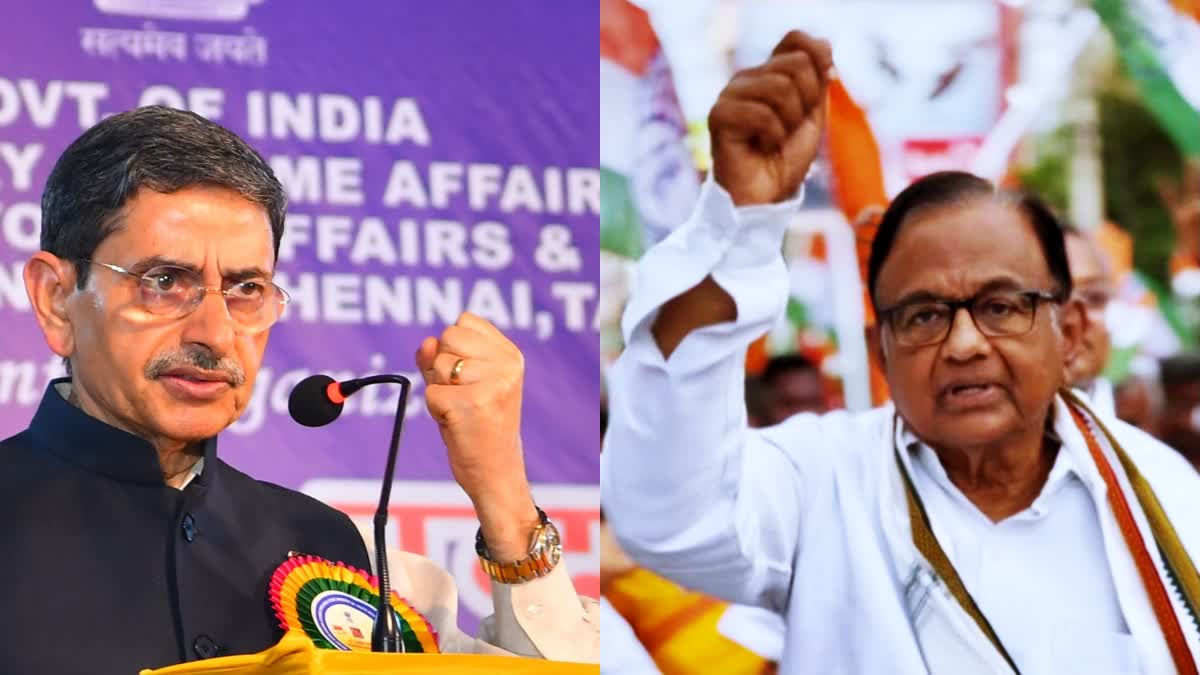Chennai:Former Finance Minister P Chidambaram said the Supreme Court's judgement asking Punjab Governor Banwarilal Purohit to decide on granting assent to bills passed by the state assembly is to be seen as "a stern rebuke to not only him but to all governors", while calling on Tamil Nadu Governor RN Ravi to read every line of the ruling.
The senior Congress leader's remarks are in reaction to the Tamil Nadu Governor Ravi's returning of 10 Bills passed by the State Assembly and the Legislative Assembly met Saturday for a special sitting and re-adopted all of them.
Chief Minister M K Stalin, who spoke on the government business in the House, slammed the governor for withholding the Bills according to his "whims and fancies."
Chidambaram, in a post in X, said, The judgement of the Supreme Court on the Governor's powers is a stern rebuke to not only the Governor of Punjab but to all Governors.
Mr R N Ravi, Governor of TN, should read every line of the judgement and, if he thinks it necessary, call a competent senior advocate to explain the judgement to him, the former Union minister said.
The Supreme Court has directed Punjab Governor Purohit to decide on the Bills passed by the legislative assembly during its "constitutionally valid" session held on June 19 and 20, saying the governor's power cannot be used to "thwart the normal course of lawmaking".
"The Governor, as an unelected Head of the State, is entrusted with certain constitutional powers. However, this power cannot be used to thwart the normal course of lawmaking by the state legislatures," said a bench comprising Chief Justice of India D Y Chandrachud, Justice J B Pardiwala and Justice Manoj Misra, in the 27-page judgement.
"In a Parliamentary form of democracy, real power vests in the elected representatives of the people. The governments, both in the states and at the Centre consist of members of the State Legislature, and, as the case may be, Parliament. Members of the government in a Cabinet form of government are accountable to and subject to scrutiny by the legislature. The Governor as an appointee of the President is the titular head of State," the top court said in its November 10 judgement, on a plea by the AAP government in Punjab which alleged the governor was not granting his assent to four bills which were passed by the assembly.
The bench ruled that "if the governor decides to withhold assent to a Bill, then he has to return the bill to the legislature for reconsideration."
"If the governor decides to withhold assent under the substantive part of Article 200, the logical course of action is to pursue the course indicated in the first proviso of remitting the Bill to the state legislature for reconsideration, the ruling said, adding that "In other words, the power to withhold assent under the substantive part of Article 200 must be read together with the consequential course of action to be adopted."
More from 'Governor vs State' tussle coverage
- ‘What was the governor doing for 3 years?’ SC on delay by Tamil Nadu governor on pending bills
- Hours after TN Assembly readopted 10 Bills returned by Governor, Ravi may leave for Delhi
- ‘Has positioned himself as political rival': Tamil Nadu govt moves SC against Governor Ravi over delay in assenting bills
- ‘Governor can't be at liberty to keep the Bill pending indefinitely without any action’, SC in Punjab govt-governor row
- Stalin speaks for INDIA: 'Binding state administration to governor's mansions has become BJP’s action plan'
